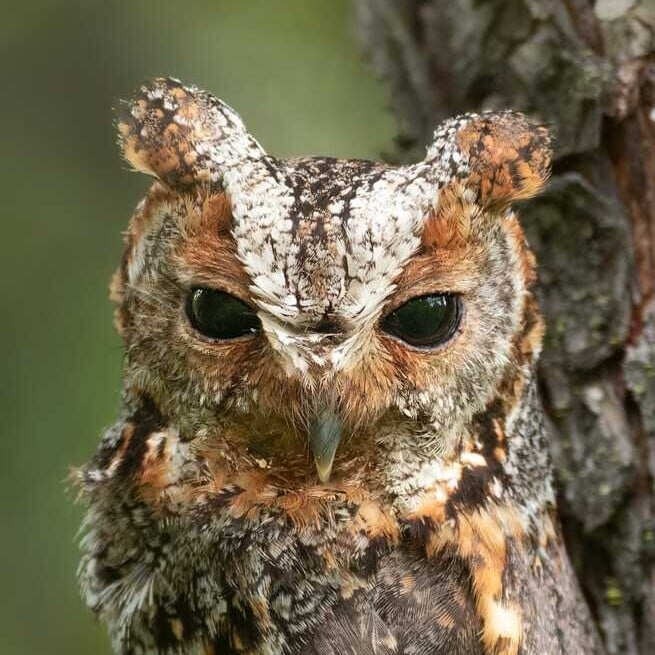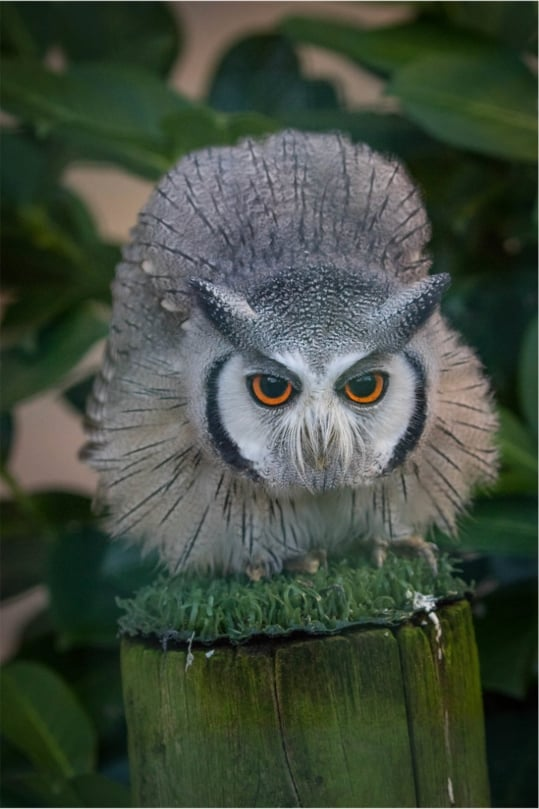Photo by Suvro Dey [Facebook]
I don’t know if we’ve featured this owl before. Also known as the Brown Boobook. This owl reaches from India to China and Indonesia.
From Owl Pages:
The Brown Hawk Owl feeds mainly on large insects such as beetles and grasshoppers, but also frogs, lizards, small birds, mice and occasionally small insectivorous bats or crabs. They hunt at dusk using a perch on a tree stump or post to look for prey. They have been observed jumping up to take a passing insect in the claws, and hawking insects in the air like a nightjar.


I think there’s a little bit of illusion going on from how the owl is sitting and the angle of the photograph.
Owl toes are pretty long, so they can grab things pretty large for their body size. The long toes not only let them grab bigger animals, but just plain increase the odds of grabbing anything, especially in the dark. It’s much like a bigger tennis racket would give you a better chance to hit the ball.
How we typically see them sitting in photos like this Barred Owl, all that belly floof is covering up much of the legs, and just the toes poke out.
In today’s photo though, our little buddy has its butt dropped down behind the branch, putting the tarsus (an extra leg bone we don’t have) in the same plane as the foot.
On this Barn Owl foot, you can easily see the orangey colored foot and where the white feathers start up to that bald patch is the tarsus.
Here you can see the bone at the bottom of this diagram.
So the toes in the Brown Hawk Owl photo are pushed towards the camera a significant bit from its body, making them look really long.
This frizzy fellow is sitting more upright and you can see the proportions more straight on and the tarsus is more distinct from the foot.
I like the toes in this pic. With the saturation cranked up, they look like angry little bumble bees.